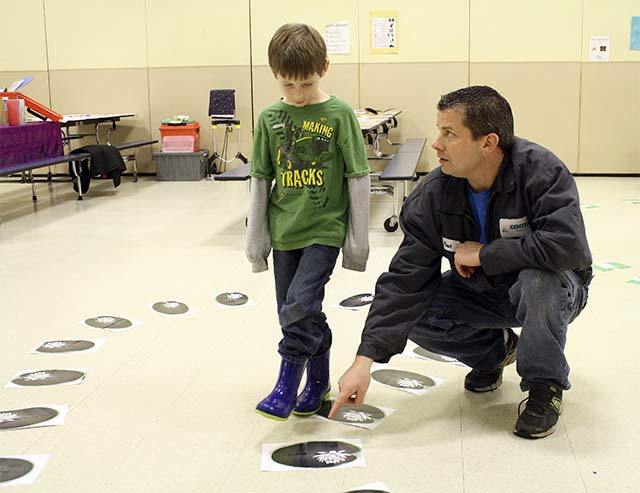Reading is an essential skill, but it doesn’t come easy to everyone. Children who struggle are often frustrated and learn to dislike reading. This year, the Snoqualmie Valley School District has revamped its reading workshop to include both parents and children in order to help foster a love of reading and learning.
Janice Formisano, Title I program specialist for reading and math intervention in the Snoqualmie Valley School District, runs workshops throughout the year at all of the Valley elementary schools to help kids and parents find ways to promote reading.
Title I is a federal program designed to put services in place to help kids who struggle to learn. Formisano’s workshops, born from this program eight years ago, were for parents to learn about how to promote reading at home. This year she expanded the workshops to include both parents and children working together on various learning activities.
“There wasn’t a lot of parent input into the program before and there wasn’t any parent outreach or training at all. That has been a huge change,” Formisano said. “Now, I have these workshops. I was doing it once a year and now I do it twice a year at each of the five elementaries. They are always well attended, parents are full of praise. We put up a big comment board at the last four and parents (wrote that they) finally felt that they had some tools in their toolbox to help at home.“
The workshops are set up with 17 stations for different reading exercises that engage both the child and the parent to build reading and other skills. These activities include a sight-word reading path, inviting children to jump along a path of words. If they read the word correctly they move on, but if not, they go back to the beginning of the path. Another activity involves categorizing words into various word families such as words that end with -et, -un, and -ow.
There is also a book walk activity that lets children pick out books to take home. Formisano said the books, published by Treasure Bay, are designed as a cooperative reading experience. On one side the parent reads more complex text that introduces new words; the other page has four or five words that the kids know they can read by sight. They are reading together, but the parents are introducing the vocabulary.
“I’s been rewarding to see the kids progress in their skills. There are 17 stations that have to have prep for them,” she said. “Four or five kids can sit there with their parents and do the activities. So creating these and finding resources for them was the hardest part. But parents are here with their kids and learning together and doing the games at home and then emailing me and telling me ‘gosh we are doing great.’”
Parents taking the initiative to help their children learn is the real key to this programming, Formisano said. Without their participation, the learning is more difficult.
“If parents would just take 15 or 20 minutes to establish a reading routine with their child, it makes a huge difference for kids who want to read. Hearing a really good reader read and introduce great words,” she said. “You don’t come with a skill set as a parent that teachers have already, so just doing some of these fun games really helps and it’s good family time for them.“
The workshops will resume at each of the five elementary schools in May, 2016. For more information about the program, contact Janice Formisano at formisanoj@svsd410.org.

Tammy and Aaron Cartwright work together to learn about and properly sort word families during one of the activities.

Books designed to help early readers learn were available at the workshop.

Bethany Holler helps her daughter Noel with word families as part of the “Word Family Houses” activity.

Megan Lusk helps her daughter Avalyn choose a book to take home.

